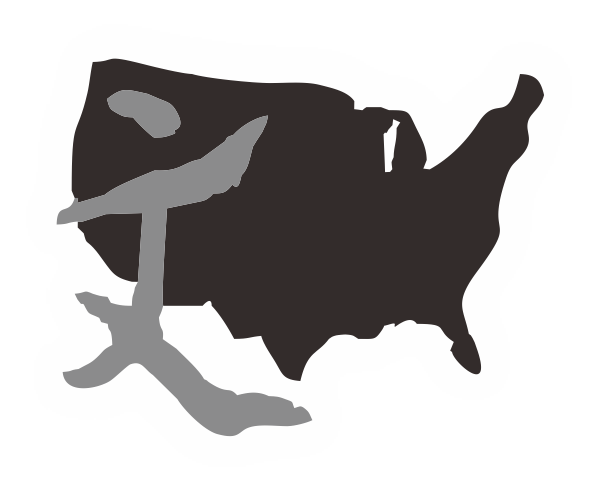尽管板桥林家前辈们为国捐献数以百万计巨资而最后无一例外地付之东流,他们的后人并没有放弃救国的希望。1971年4月,第七屆中英庚款奬學金化學專業得主、时任加拿大不列颠哥伦比亚大学物理化学教授的林慰桢博士,偕妻子刘树璋、女儿林东宁(Peggy)结束在丹麦哥本哈根奥斯特研究所为期一年的研究工作后,绕道巴黎,从中国驻法国使馆取得入境签证,乘法航飞往上海,回到他侨居国外几十年如一日(1940-1971)、梦寐以求、朝思暮想的故乡参观访问。自那以后,他利用每一个休学年回中国大陆讲学研究。林慰桢的女儿林东宁在一封家信中写道:
“In late April 1971, my family and I flew out on Air France from Paris to Shanghai. This was before Nixon’s visit to China and the establishment of U.S. –China diplomatic relations. Canada, however, had already established diplomatic relations with China. And I think Europe was way ahead of both Canada and the States.
I had met up with my folks in London in the summer of 1970 and spent the following year with Mom and Dad in Copenhagen where Dad was on sabbatical. We took that opportunity to visit the Chinese embassy in Copenhagen and to set up the trip to China. At that time, only Air France could get us there from Europe, so that’s how we started out. The evening before we were to fly out, I walked around the Odeon area and the Left Bank, where we were staying, to say goodbye to Paris. And I haven’t been back since then.
We flew into Shanghai, and from there we had to change to a local flight to Beijing. And what a change it was! From the slim and classy stewardesses on Air France to the young girls, plump and rosy cheeked, with long black braids, and wearing the baggy dark blue pants and olive-green jackets of the Chinese Airforce! It was my first trip ever to Asia, and I was in a general state of stupefaction throughout what was actually quite a historic trip – but that’s another story.
Throughout our trip, after we’d landed in Beijing, we were accompanied by Lao Hwang, a skinny young man with glasses, who hailed from Shanghai and worked for the China Travel Service. In those days, it wasn’t possible for foreigners to travel by themselves in China. And it would probably have been difficult anyway, because we had no idea how things worked. Lao Hwang bought the tickets and made all the hotel and travel arrangements according to some plan already set up for the month we were to spend in China.
In Beijing, among other things, we got to see the May 1st, International Labor Day, celebrations from the grandstand at Tiananmen Square, and Mao even came out to wave to the crowd, but I was too short to see him. The last stage of our trip, before we were to leave China from Guangzhou, was to Fujian province so that Dad could visit Amoy and Gulangyu. At that time, Fujian province was not open to any travel by foreigners. It was considered a potential war zone, a frontline province, since it is right across the Strait from Taiwan. In fact, both sides were still bombarding each other periodically with propaganda pamphlets, and at Amoy University we saw scars left by other bombardments from Taiwan.
In Gulangyu, we visited Shuzhuang Garden, but it had been renamed Qian Shao Gong Yuan (loosely, Vanguard Outpost Garden), in keeping with the vocabulary of the Great Proletarian Cultural Revolution. Great grandpa’s statue was not there. Though the fighting during the Cultural Revolution had stopped, as well as much of the physical abuse, the spirit of that mass movement was still strong.
From Shuzhuang Garden, we were taken to the old home where your Dad and my Dad grew up. In the Octagon Building, on the first floor, we saw 「San Ma」, whom you and I should call 「No. 3 great grandmother」. However, for convenience, I will refer to her as San Ma which is what our dads would have called her.
All I remember of that visit was that the building was dilapidated, and the room was dark. San Ma was a small, thin woman, with her grey hair tied up in a bun at the back. And she told us that since great grandpa wasn’t available, his bronze statue had been taken around the city instead, to be castigated, beaten and whatever. From then on, the statue had disappeared. She told us that she hadn’t suffered much during the Cultural Revolution because she’d been known for her kindness to the poor. It never occurred to me until recently that she couldn’t say much more, because Lao Hwang was with us, and she must have learned to speak carefully. I know I cried a lot, listening to her. Lao Hwang made a little fun of me, and I didn’t quite understand why at the time. I just felt so sorry that she’d been left behind by great grandpa when the rest of the family left the Mainland for Taiwan in 1947.
San Ma asked us to visit the old servant, Hui-Ah, who lived just outside the family compound. He was the family’s only faithful servant, she said. All I remember is that the room was bare, and he lay, very sick, on a hard-wooden bed. We never saw either San Ma or Hui-Ah again. San Ma passed away in 1973。”
信的大意是:
“在一九七一年四月下旬,我和父母乘法航从巴黎飞到上海。这在尼克松访华、中美建交之前。那时加拿大已经与中国建立了外交关系。而欧洲领先于加拿大和美国,早已建交。
一九七○年夏天,我在伦敦和父母汇合,并和他们一起在哥本哈根度过了父亲的教学休教年。借此机会我们为准备中国之旅访问了在哥本哈根的中国大使馆。当时,只有法国航空公司有自欧洲到中国的航线,所以我们选择了法航。晚上,临行之前,我在旅馆附近的国宾区(Odeon)和左岸走了一圈,以此告别巴黎。至今我没有回过巴黎。
我们飞到上海后,从那里改乘国内班机飞往北京。从苗条、优雅的法航空姐,到满面红光、黑色长辫、穿着宽大松弛、深蓝色裤子和身着橄榄绿外套的年轻中国空军小姐,两个航班是多么的不同!这是我第一次来亚洲,我当时处在一种麻木状态,没有想到这将是一次历史性的访问 - 但这是另一个故事。
飞机在北京降落后,一位戴眼镜自称「老黄」的从中国旅行社派来的瘦小年轻人陪伴我们全程旅行。那时,外国人不可能自己在中国旅游。即便可以自由旅游,也没人知道如何运作。老黄在我们到达之前早已为我们一个月的国内旅行买好各种机票、车票,安排好旅馆、交通的诸多繁琐事项。
在北京被安排满满的事项中,我们有幸在「五一国际劳动节」那天被安排进天安门观礼台上,观看在天安门广场上举行的各项庆祝活动。毛泽东曾出来向人群挥手,但因我个子太矮,没有看到他。此行最后一段从广州离开中国之前,我们参观了福建厦门和鼓浪屿。福建海峡对岸就是台湾,当时是潜在的战区前线省份,对外一律不开放给任何外国人参观。事实上,海峡两岸还在定期炮轰对方,但大多是宣传小册子。也有动真的时候,在厦门大学校园留下炮轰后的痕迹。
在鼓浪屿,我们参观了菽庄花园。但它已被改名为前哨公园, 很合乎当时无产阶级文化大革命时的用词。曾祖父的铜像不见了。虽然文革时的武斗、人身虐待已经停止,但群众运动的精神依然旺盛。从菽庄花园,我们被带到了父亲从小长大的故居。在八角楼一层楼的一间屋里,我们看到了「三嬷」(虽然我应该叫她三曾祖母,为方便起见,这里就用父亲叫她的称呼)。
我只记得那次访问中的大楼很破旧,屋里一片漆黑。三嬷是一个瘦小、单薄的女人,灰白的头发在脑后扎起一个发髻。她告诉我们,因为曾祖父本人不在,他的铜像便被拖出去游街示众、鞭打辱骂。从此铜像没了踪影。三嬷告诉我们,因她平时总是乐施济贫,所以在文革期间没有遭罪。直到最近我才想到当着旅行社老黄的面,三嬷不便讲话,要讲也得小心翼翼。我记得听三嬷讲话时,我哭得很厉害。老黄因此还笑话我,其实连我自己也不知道我为什么会哭。我只是为三嬷而难过,曾祖父离夏赴台时带走了全家人,却留下她三嬷一人在大陆。
临别时,三嬷要我们去看望住在林家大院外的老仆人,辉仔。「辉仔是家里唯一忠实的仆人」,三嬷讲。我只记得走进一间光秃秃的房子,病重的老仆人躺在坚硬的木板床上。这次访问后,我们再没有看见过三嬷和辉仔。一九七三年三嬷过世。
多年深受父母爱国教育和影响,从加拿大不列颠哥伦比亚大学英语系毕业不久的女儿林东宁(Peggy)先行父母一步。于1973年11月飞往香港,乘火车到达深圳,徒步经罗湖入境后,在广州乘飞机到达北京,开始了她第一年在北京语言学院、第二年在北京大学中文系的学习生活。
林东宁在北京学习期间,和林慰桢同期获得(1939年第七届)中英庚款奖学金、同船前往加拿大留学,回国后时任中国科学院力学研究所所长的钱伟长教授夫妇曾邀请东宁到他们家吃饭、作客。
1976年9月林慰桢欣然接受老友卢嘉锡教授邀请前往卢教授所创办的福建物质结构研究所讲学研究一年。妻子刘树璋、女儿林东宁一同前往。到达国内在上海参观期间,正赶上毛泽东九月九日去世。9月中旬,全家来到福建物质结构研究所,林慰桢在物构所指导顺磁研究工作,妻子刘树璋和女儿林东宁在福建师范大学分别教授生物化学和英文。
1977年春节后,林慰桢的女儿林东宁结束福建师范大学英语系一学期的教学,被调到中央编译局参加《毛泽东选集》五卷的英文译审工作。
林慰桢夫妇一直工作到秋季,才返回加拿大。林慰桢和老友卢嘉锡同堂讲课、同室研究、一同下地劳动、称兄道弟、亲如手足。
1978年7月,林慰桢夫妇再次回国访问,国务院副总理方毅在人大会堂接见并设宴招待。




